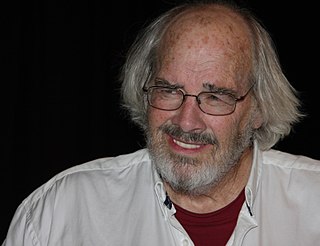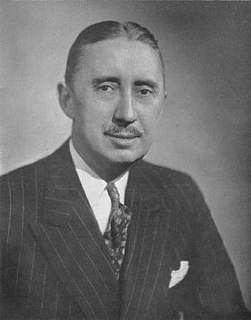A Quote by Margaret Mead
Human beings do not carry civilization in their genes. All that we do carry in our genes are certain capacities- the capacity to learn to walk upright, to use our brains, to speak, to relate to our fellow men, to construct and use tools, to explore the universe, and to express that exploration in religion, in art, in science, in philosophy.
Related Quotes
Of course our genes will make some capacities very much easier to learn than others, and of course our genes themselves are not learned. But the point remains that genes themselves are not cognitive capacities, and that anything worth calling a cognitive capacity will depend to some degree on learning and so not be innate.
Recently, results of the Human Genome Project have shattered one of Science's fundamental core beliefs, the concept of genetic determinism. We have been led to believe that our genes determine the character of our lives, yet new research surprisingly reveals that it is the character of our lives that controls our genes. Rather than being victims of our heredity, we are actually masters of our genome.
Although a system may cease to exist in the legal sense or as a structure of power, its values (or anti-values), its philosophy, its teachings remain in us. They rule our thinking, our conduct, our attitude to others. The situation is a demonic paradox: we have toppled the system but we still carry its genes.
Schwartz's research suggests something important: we can stretch our personalities, but only up to a point. Our inborn temperaments influence us, regardless of the lives we lead. A sizeable part of who we are is ordained by our genes, by our brains, by our nervous systems. And yet the elasticity that Schwartz found in some of the high-reactive teens also suggests the converse: we have free will and can use it to shape our personalities.
And if you listen to Irish music, they say that kilts came from the middle east. So really I'm an Arab. If you listen to the way someone like Sinead O'Connor sang. It could be Muslim. You know that angst that sort of ****. That wail. I think it's in our genes. I think certain stuff is in our genes, like nobody can dance like a black guy. It's in their genes. So we don't have oil, but we have poetry.
Yes, genes are important for understanding our behavior. Incredibly important - after all, they code for every protein pertinent to brain function, endocrinology, etc., etc. But the regulation of genes is often more interesting than the genes themselves, and it's the environment that regulates genes.
In this age of space flight, when we use the modern tools of science to advance into new regions of human activity, the Bible... remains in every way an up-to-date book. Our knowledge and use of the laws of nature that enable us to fly to the Moon also enable us to destroy our home planet with the atom bomb. Science itself does not address the question whether we should use the power at our disposal for good or for evil. The guidelines of what we ought to do are furnished in the moral law of God.
We need to transcend our thoughts and desires to truly understand philosophy and the universe as a whole. However, in our everyday life, we deal with the micro universe and with our own affairs. Therefore we need to use our brain. To practice Tao is not to rid yourself of all thoughts. There are actually more occasions when you would use your true intention instead of non-desire.
My deeply held belief is that if a god of anything like the traditional sort exists, our curiosity and intelligence are provided by such a god. We would be unappreciative of those gifts (as well as unable to take such a course of action) if we suppressed our passion to explore the universe and ourselves. On the other hand, if such a traditional god does not exist, our curiosity and our intelligence are the essential tools for managing our survival. In either case, the enterprise of knowledge is consistent with both science and religion, and is essential for the welfare of the human species.
I think that human beings have gotten as far as we've gotten because of our adaptability, our ability to adapt, and our ability to dovetail our technologies - our brains to our tools. With the Industrial Revolution, we transcended the limits of our muscles. With the digital revolution, we transcend the limits of our minds.


































